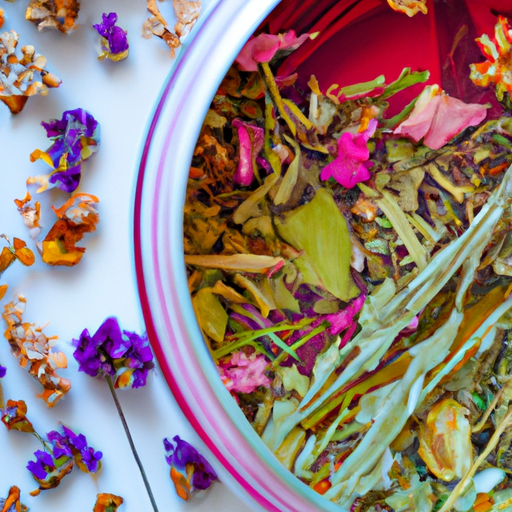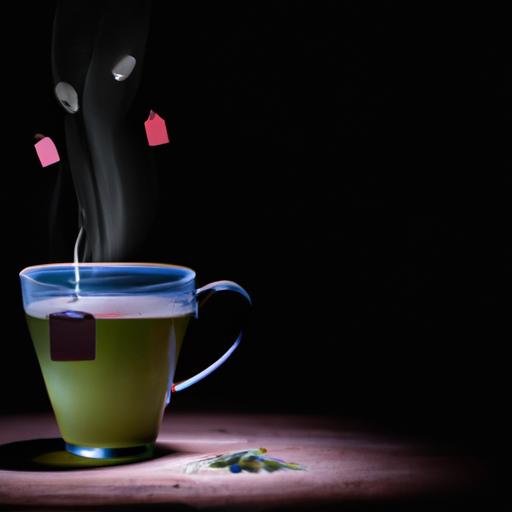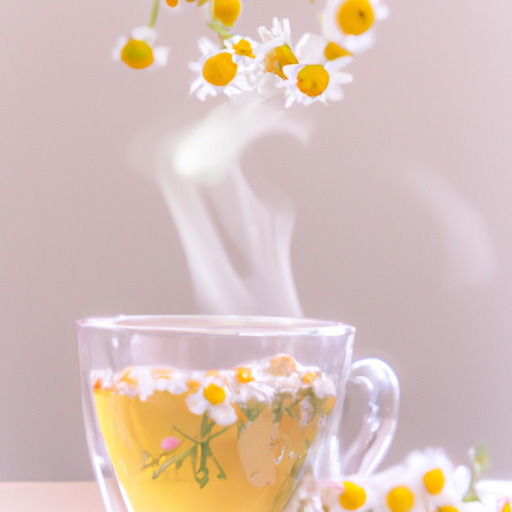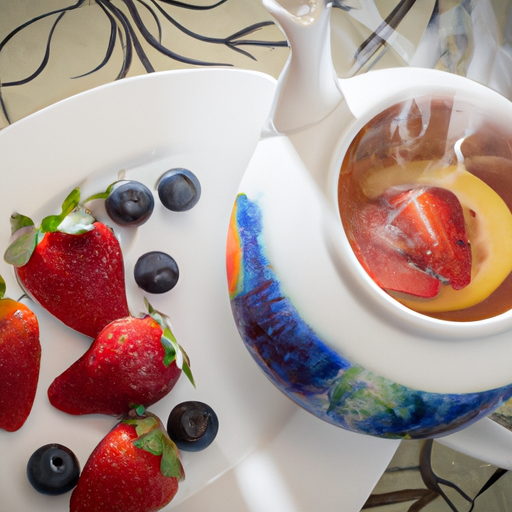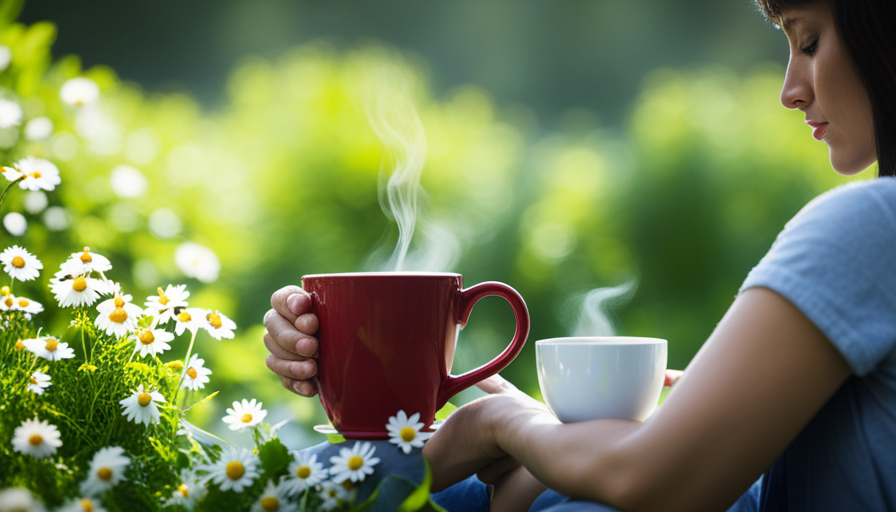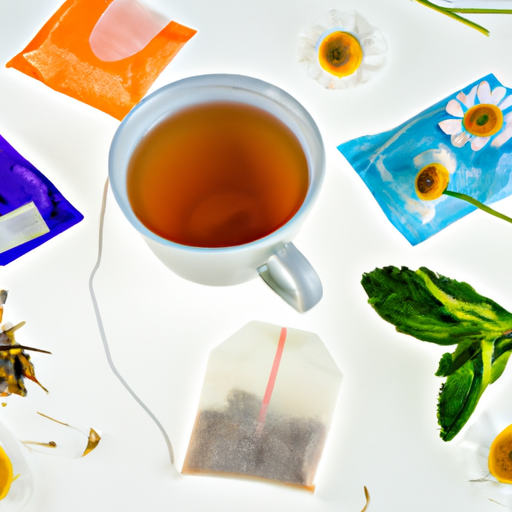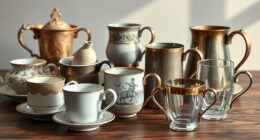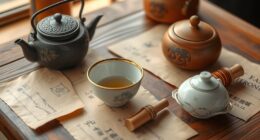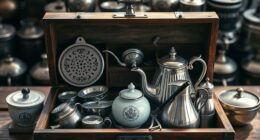Ah, the delights of a calming herbal bath tea. A lavish retreat from the hustle and bustle of daily life, allowing you to relax in a cozy bath and be embraced by the rejuvenating properties of nature.
But wait! How long can we truly enjoy this delightful potion of relaxation? How long is herbal bath tea good?
Fear not, my fellow tea enthusiasts, for I am here to shed some light on this aromatic question. In the realm of herbal bath teas, freshness is key. Just like a cup of tea, the flavors and benefits of herbal bath teas can diminish over time. But how do we determine if our beloved bath tea is still fresh? And how can we extend its shelf life, ensuring many more blissful soaks in the future?
Join me on this journey as we explore the secrets of herbal bath tea longevity. From proper storage techniques to signs of spoiled tea, we will arm ourselves with knowledge and embrace the art of self-care.
So, prepare to dive into a world of relaxation, because with a little wisdom and a dash of humor, you can enjoy your herbal bath tea responsibly and rejuvenate your mind, body, and soul.
Key Takeaways
- Herbal bath tea can last 1-3 years if stored properly.
- Signs of spoiled herbal bath tea include discoloration, unusual smell, and mold.
- To determine freshness, evaluate the appearance, smell, and texture of the tea.
- Proper storage includes using an airtight container, storing in a cool and dark place, and labeling containers.
The Shelf Life of Herbal Bath Tea
How long can you expect your herbal bath tea to remain fresh and effective? The shelf life of herbal bath tea can vary depending on factors such as the ingredients used, the storage conditions, and the presence of preservatives.
Most herbal bath teas have an expiration date printed on the packaging, which indicates the period of time within which the product is expected to remain at its peak quality. It’s important to note that the expiration date isn’t an exact science, but rather a guideline.
In general, herbal bath teas can last anywhere from 1 to 3 years if stored properly. However, it’s always best to use your own judgment and rely on your senses to determine if your herbal bath tea is still fresh. Look for any signs of discoloration, unusual smell, or presence of mold. If your herbal bath tea has lost its vibrant color or has a rancid smell, it’s likely past its prime and should be discarded.
In the next section, we’ll explore how to determine if your herbal bath tea is still fresh without relying solely on expiration dates.
How to Determine if Your Herbal Bath Tea is Still Fresh
To gauge the freshness of your aromatic soak mixture, simply tune in to your senses and allow the delicate fragrance to transport you to a sun-kissed garden. Determining the freshness of herbal bath tea involves evaluating its quality through sight, smell, and touch. Here is a table that provides a visual representation of these evaluation methods:
| Evaluation Method | Signs of Freshness |
|---|---|
| Sight | Vibrant colors and no signs of discoloration or mold |
| Smell | Strong and pleasant aroma |
| Touch | Dry and crumbly texture |
By observing the tea’s appearance, you can look for vibrant colors and ensure there are no signs of discoloration or mold. A fresh herbal bath tea will emit a strong and pleasant aroma, indicating the presence of aromatic essential oils. When you touch the tea, it should have a dry and crumbly texture, indicating that it has not absorbed excess moisture.
Successfully evaluating the freshness of your herbal bath tea ensures a rejuvenating experience. Now, let’s explore proper storage techniques for herbal bath tea.
Proper Storage Techniques for Herbal Bath Tea
Employing appropriate storage techniques is crucial for maintaining the potency and freshness of your aromatic soak blend. Here are three key points to consider when storing your herbal bath tea:
-
Keep it in an airtight container: Airtight containers prevent moisture and air from getting in, which can degrade the quality of your herbal bath tea. Choose glass jars or metal tins with tight-fitting lids to ensure maximum freshness.
-
Store it in a cool, dark place: Heat and light can cause the herbs in your bath tea to lose their potency. Find a cool, dark spot in your bathroom or pantry to store your blend. Avoid storing it near the stove or in direct sunlight.
-
Label and date your containers: To keep track of the freshness of your herbal bath tea, it’s important to label and date each container. This way, you’ll know when it’s time to use it or replace it with a fresh batch.
Using herbal bath tea offers various benefits, such as relaxation, stress relief, and skincare. There are different types of herbal bath tea available, including blends for soothing muscles, promoting sleep, or rejuvenating the skin.
Now let’s explore the signs of spoiled herbal bath tea.
Signs of Spoiled Herbal Bath Tea
If your aromatic soak blend starts smelling funky or looks moldy, it’s a sure sign that your herbal bath tea has gone bad. These signs indicate that the tea may have been contaminated with bacteria, which can pose potential health risks.
Bacterial contamination can occur when the tea is exposed to moisture or improper storage conditions. It’s important to note that herbal bath teas don’t contain preservatives like commercial products do, making them more susceptible to spoilage.
Spoiled herbal bath tea can have a foul odor, similar to rotting or sour smells. You may also notice visible mold or discoloration in the tea. Consuming spoiled herbal bath tea can lead to stomach discomfort, food poisoning, or other health issues. It’s crucial to discard any tea that shows signs of spoilage.
To avoid bacterial contamination and extend the shelf life of your herbal bath tea, there are several steps you can take. Properly storing the tea in an airtight container, away from moisture and direct sunlight, is essential. Additionally, keeping the tea in a cool and dry place can help prevent spoilage.
By following these guidelines, you can enjoy your herbal bath tea for a longer period and ensure a safe and pleasant bathing experience.
Ways to Extend the Shelf Life of Herbal Bath Tea
By storing your aromatic soak blend in a sealed jar, you can lock in its fragrant essence and ensure its freshness lasts. To extend the shelf life of your herbal bath tea, there are a few simple ways you can try. First, keep it in a cool and dry place away from direct sunlight. This will prevent moisture and heat from degrading the quality of the herbs. Second, avoid using wet hands or utensils when handling the tea, as this can introduce moisture and promote spoilage. Lastly, consider adding a natural preservative such as vitamin E oil or rosemary extract to help prevent the growth of bacteria and fungi.
To give you a better idea of how long herbal bath tea can last, here is a table that outlines the approximate shelf life of common herbs used in bath teas:
| Herb | Shelf Life |
|---|---|
| Lavender | 1-2 years |
| Chamomile | 1-2 years |
| Rose petals | 1-2 years |
| Peppermint | 2-3 years |
Making herbal bath tea at home not only allows you to customize the blend to your liking but also offers numerous benefits. The natural properties of herbs can help soothe and relax the body, relieve muscle tension, promote better sleep, and nourish the skin. By incorporating these natural ingredients into your bathing routine, you can create a rejuvenating and therapeutic experience.
As you now know ways to extend the shelf life of your herbal bath tea, let’s explore what happens when you use expired herbal bath tea.
Using Expired Herbal Bath Tea
Using expired herbal bath tea can have negative effects on your skin and overall bathing experience. It’s important to be aware of these potential risks and take precautions to ensure a safe and enjoyable herbal bath.
Here are three reasons why you should avoid using expired herbal bath tea:
-
Decreased effectiveness: Over time, the active compounds in herbal bath tea can degrade, resulting in a loss of their beneficial properties. This means that using expired tea may not provide the desired therapeutic effects, such as relaxation or skin nourishment.
-
Contamination: As herbal bath tea ages, it becomes more susceptible to bacterial growth and contamination. Using expired tea increases the risk of skin irritation, infections, or other adverse reactions. It’s crucial to prioritize your health and well-being by using only fresh and properly stored herbal bath tea.
-
Unpleasant odor or taste: Herbal bath tea that has passed its expiration date may develop an unpleasant odor or taste. This can diminish the overall sensory experience and make your bath less enjoyable.
It’s best to avoid using expired herbal bath tea to ensure optimal results and minimize potential risks. Enjoy your herbal bath tea responsibly by using fresh and properly stored products.
Conclusion: Enjoy Your Herbal Bath Tea Responsibly
Go ahead and savor your soothing herbal bath tea responsibly, because who needs to worry about expired products when you can luxuriate in freshness and purity? When it comes to herbal bath tea, it’s important to be mindful of its expiration date. Using expired herbal bath tea can pose potential health risks, as the quality and effectiveness of the herbs may deteriorate over time. It’s always best to use herbal bath tea within its recommended timeframe for optimal benefits.
However, if you happen to come across expired herbal bath tea, there are ways you can still make use of it without compromising your well-being. One option is to repurpose it as a foot soak or a facial steam. The herbs can still provide some therapeutic benefits in these alternative uses. Another option is to use the expired herbal bath tea as a fragrant addition to homemade potpourri or sachets. This way, you can still enjoy the pleasant aroma without ingesting or applying it directly to your skin.
Remember, though, that reusing expired herbal bath tea should be done with caution. The potency and safety of the herbs may be compromised, so it’s important to be aware of any potential allergic reactions or adverse effects. When in doubt, it’s always best to consult with a healthcare professional before using expired herbal bath tea for any purpose.
| Potential Health Risks of Using Expired Herbal Bath Tea | Ways to Reuse Herbal Bath Tea |
|---|---|
| – Reduced potency and effectiveness of herbs | – Foot soak |
| – Potential for allergic reactions | – Facial steam |
| – Adverse effects on the skin | – Potpourri or sachets |
Frequently Asked Questions
Can I use herbal bath tea that has been stored for more than a year?
No, it is not recommended to use expired herbal bath tea that has been stored for more than a year. The potency and effectiveness of the herbs may be compromised, and it is best to use fresh herbal bath tea for optimal benefits.
What are the potential health risks of using expired herbal bath tea?
Using expired herbal bath tea can pose potential health risks. The expiration date is crucial as expired tea may lose its effectiveness and can lead to skin irritations, allergies, or infections.
Are there any specific ingredients in herbal bath tea that tend to spoil faster than others?
Some ingredients in herbal bath tea may spoil faster than others, but it is important to note that the potential benefits of using herbal bath tea outweigh the potential side effects.
Can I store herbal bath tea in the refrigerator to extend its shelf life?
Storing herbal bath tea in the refrigerator can help extend its shelf life by keeping it fresh and preventing spoilage. This can maximize the benefits of herbal bath tea, allowing you to enjoy its soothing properties for a longer period of time.
What are the signs that herbal bath tea has gone bad and should not be used?
One sign that herbal bath tea has gone bad is a strong, unpleasant odor. If the tea smells rancid or moldy, it should not be used. In this case, alternative uses could include composting or using it as a natural air freshener.
Conclusion
In conclusion, folks, let me tell you, the world of herbal bath tea is an absolute delight! But remember, my fellow bath enthusiasts, responsible enjoyment is the key.
While the shelf life of herbal bath tea may not be forever, fear not! With proper storage techniques and a keen eye for freshness, you can extend its life and keep indulging in luxurious baths.
So go ahead, sip your tea, soak in the goodness, and let the herbal magic rejuvenate your body and soul. Cheers to the power of herbal bath tea!

